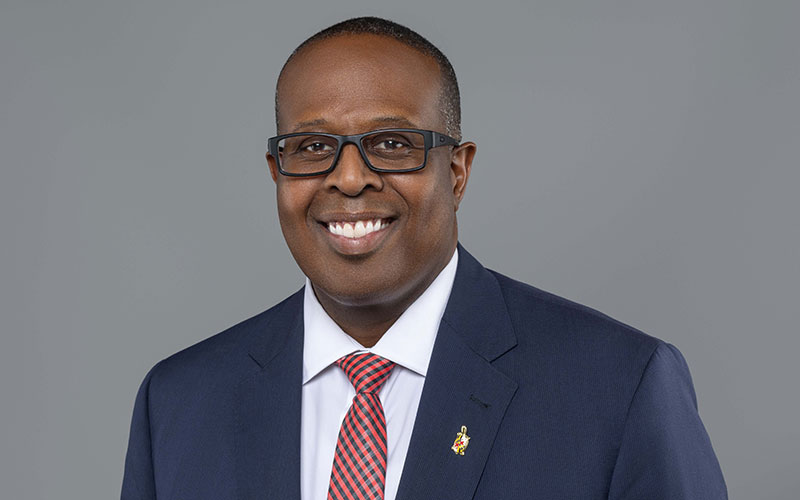Meet the Dean
Samuel Graham is dean of the A. James Clark School of Engineering at the University of Maryland (UMD) and Nariman Farvardin Professor in the Department of Mechanical Engineering.
Download Dean Graham's headshot
Samuel Graham is dean of the A. James Clark School of Engineering at the University of Maryland (UMD) and Nariman Farvardin Professor in the Department of Mechanical Engineering.
Download Dean Graham's headshot
During Samuel Graham’s tenure as dean, the Clark School had advanced its trendsetting research in engineering and medicine, robotics and autonomous systems, semiconductors, transportation, artificial intelligence (AI), energy storage and systems, and quantum technology. The school has also launched new academic programs including a degree program in engineering AI, a minor in quantum science and engineering, and a Capstone Design Expo. For the seventh consecutive year, the Clark School ranks #10 among the country’s top public universities in graduate engineering programs, according to U.S. News & World Report. In undergraduate programs, the school ranks ninth among public institutions. Graham also led the development of the school’s new strategic plan, We Innovate for the Public Good, focusing on reimagining how we teach to advance learning; accelerating research, discovery, innovation, and impact; empowering the Clark School community; and building partnerships to enhance our impact.
Graham’s research centers on the development of electronics made from wide bandgap semiconductors for a range of applications in communications, power electronics, and neuromorphic computing. His work has earned several awards including the 2022 American Society of Mechanical Engineers (ASME) Allan Kraus Thermal Management Medal for “expertise in the thermal engineering of wide bandgap semiconductor devices and interfaces, including heterogeneous integration methods for thermal management.”
In January 2023, Graham was chosen as a fellow of the American Association for the Advancement of Science and in 2014 was chosen as a fellow of the ASME. Graham is a Senior Member of the Institute of Electrical and Electronics Engineers and previously received the Society of Manufacturing Engineers International M. Eugene Merchant Outstanding Young Manufacturing Engineer Award.
Graham became dean of the Clark School in October 2021. Prior to joining UMD, he was Eugene C. Gwaltney, Jr. Chair of the George W. Woodruff School of Mechanical Engineering at the Georgia Institute of Technology and a Senior Member of Technical Staff at Sandia National Laboratory. He has served on the Defense Science Study Group and Air Force Scientific Advisory Board, and was the recipient of a 2005 National Science Foundation CAREER Award.
Graham earned his B.S. from Florida State University and his M.S. and Ph.D. in mechanical engineering from Georgia Tech.